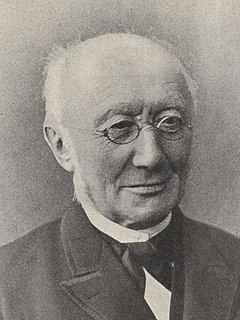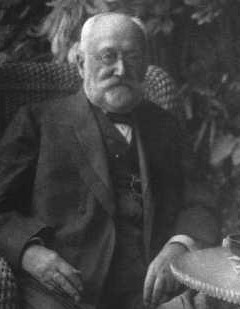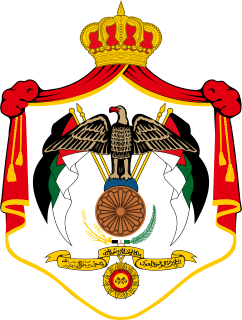
Federal elections were held in Germany on 20 February 1890. The Centre Party regained its position as the largest party in the Reichstag by winning 107 of the 397 seats, whilst the National Liberal Party, formerly the largest party, was reduced to 38 seats.

Federal elections were held in Germany on 21 February 1887. The National Liberal Party became the largest party in the Reichstag by winning 98 of the 397 seats, whilst the Centre Party, formerly the largest party, was reduced to 98 seats. Voter turnout was 77.5%.

Federal elections were held in Germany on 28 October 1884. The Centre Party remained the largest party in the Reichstag, with 99 of the 397 seats. Voter turnout was 60.5%.

Federal elections were held in Germany on 27 October 1881. The Centre Party became the largest party in the Reichstag, with 100 of the 397 seats, whilst the National Liberal Party, which had previously been the largest party, was reduced to 45 seats. Voter turnout was 56.3%.

Federal elections were held in Germany on 19 January 1919, although members of the standing army in the east did not vote until 2 February. The elections were the first of the new Weimar Republic, which had been established after World War I and the Revolution of 1918–19, and the first with women's suffrage. The previous constituencies, which heavily overrepresented rural areas, were scrapped, and the elections held using proportional representation. The voting age was also lowered from 25 to 20. Austrian citizens living in Germany were allowed to vote, with German citizens living in Austria being allowed to vote in the February 1919 Constitutional Assembly elections.

Federal elections were held in Germany on 25 January 1907. Despite the Social Democratic Party (SPD) receiving a clear plurality of votes, they were hampered by the unequal constituency sizes that favoured rural seats. As a result, the Centre Party remained the largest party in the Reichstag after winning 101 of the 397 seats, whilst the SPD won only 43. Voter turnout was 84.7%.

Folketing elections were held in Denmark on 28 October 1947, except in the Faroe Islands where they were held on 18 February 1948. The Social Democratic Party remained the largest in the Folketing, with 57 of the 150 seats. Voter turnout was 85.8% in Denmark proper and 60.1% in the Faroes.

Parliamentary elections were held in Russia on 12 December 1993. They were the first parliamentary elections in post-Soviet Russia and the last to the Federation Council, with future members appointed by provincial legislatures and governors.

General elections were held in Belgium on 23 May 1965. The result was a victory for the Christian Social Party, which won 77 of the 212 seats in the Chamber of Representatives and 44 of the 106 seats in the Senate. Voter turnout was 91.6%. Elections for the nine provincial councils were also held.
Federal elections were held in Switzerland on 29 October 1967. The Social Democratic Party remained the largest party in the National Council, winning 50 of the 200 seats.

General elections were held in Jordan on 29 August 1951. As political parties were banned at the time, all candidates ran as independents, although some affiliated with the Jordanian Communist Party, the Ba'ath Party the Arab Constitutional Party and the Umma Party all won seats.

Parliamentary elections were held in Hungary on 25 and 26 January 1920. However, they were only held in 164 districts. After the Treaty of Trianon was signed, the 44 districts previously occupied by Romania voted between 13 June and 5 July, whilst the 11 districts occupied by Serbia did not vote until 30 and 31 October 1921. The election was held with compulsory voting. In protest at this and other changes to the franchise that left 60% of the voting age population unable to vote, the Hungarian Social Democratic Party boycotted the elections, and called for its supporters to cast invalid votes, resulting in an unusually high number of blank or invalid votes - 11.8% in the January elections and over 20% in Budapest and other major cities.

General elections were held in Liechtenstein on 11 March 1918, with a second round on 18 March. They were the first elections held in the country contested by political parties, as the Christian-Social People's Party and Progressive Citizens' Party had been founded that year. The Progressive Citizens' Party emerged as the largest in the Landtag, winning seven of the 12 elected seats.

General elections were held in Liechtenstein on 29 April 1945. Following the "silent elections" of 1939, they were the first to use the new proportional representation system. The Progressive Citizens' Party won eight of the 15 seats in the Landtag, but remained in coalition with the Patriotic Union.

Constituent Assembly elections were held in Portugal on 28 May 1911, following a coup in October 1910. The result was a victory for the Portuguese Republican Party, which won 229 of the 234 seats.

General elections were held in Portugal on 28 April 1918, following a coup by Sidónio Pais in December 1917. The elections were boycotted by the Democratic Party, the Evolutionist Party and the Republican Union, who had won over 90% of the seats in the 1915 elections.

General elections were held in Romania in June 1931. The Chamber of Deputies was elected on 1 June, whilst the Senate was elected in three stages on 4, 6 and 8 June. The result was a victory for the governing National Union, an alliance of the National Party, the National Liberal Party, the German Party, the Agrarian Union Party, the Vlad Ţepeş League, the Agrarian League and several other parties. The Union won 289 of the 387 seats in the Chamber of Deputies and 108 of the 113 seats in the Senate elected through universal vote. The five seats won by the Communist-dominated Peasant Workers' Bloc were ultimately invalidated by the new Parliament.

General elections were held in Romania in July 1932. The Chamber of Deputies was elected on 17 July, whilst the Senate was elected in three stages on 20, 24 and 26 July. The result was a victory for the governing National Peasants' Party-German Party alliance, which won 274 of the 387 seats in the Chamber of Deputies and 104 of the 113 seats in the Senate elected through universal male vote. Of the 274 Chamber seats, 265 were taken by the National Peasant's Party and nine by the German Party.
Federal elections were held in Switzerland on 29 October 1939. The Free Democratic Party emerged as the largest party in the National Council, winning 49 of the 187 seats. Due to the outbreak of World War II, there were no elections in nine of the 25 cantons; Appenzell Ausserrhoden, Lucerne, Neuchâtel, Schwyz, Solothurn, Ticino, Valais, Vaud and Zug. In what became known as "silent elections", a total of 55 candidates were elected unopposed.
The People's Party was a political party in Bulgaria between 1894 and 1920.
















